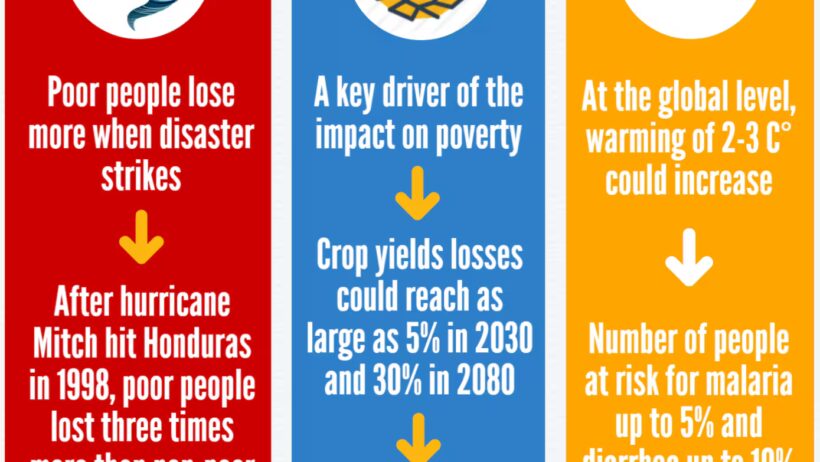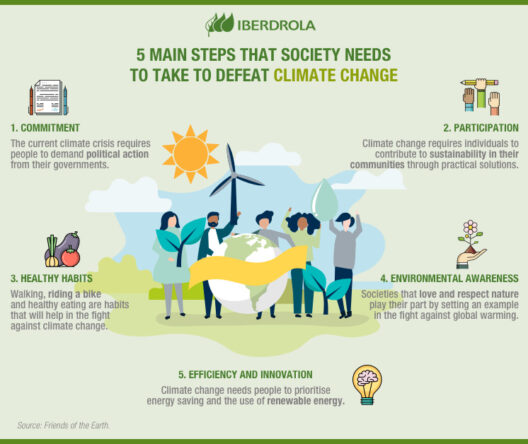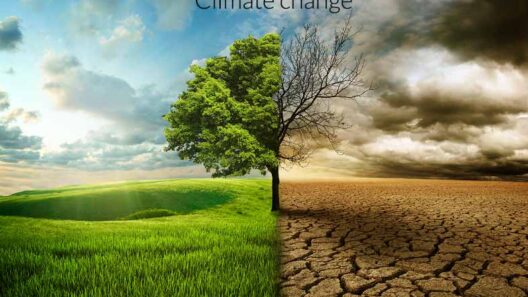Climate change is an existential threat that transcends environmental degradation; it is intrinsically linked to socio-economic inequalities and exacerbates the plight of impoverished communities worldwide. The interconnection between climate change and poverty manifests in myriad ways, distinguishing it as not merely an environmental issue, but a critical justice issue. Understanding how climate change affects poverty requires a deep dive into the multifaceted repercussions of climate phenomena on vulnerable populations.
To establish the nexus between climate change and poverty, one must first grasp the underlying dynamics of both phenomena. Climate change, driven predominantly by anthropogenic emissions, results in the shifting of weather patterns, increased natural disasters, and the gradual but relentless rise in sea levels. These environmental alterations disproportionately affect those without the resources to adapt or recover. The poorest communities often reside in the most vulnerable geographic areas, such as flood plains or unstable slopes. Consequently, the impacts of extreme weather events—hurricanes, droughts, and floods—hit hardest where people can least afford to absorb the shock.
When natural disasters strike, they obliterate critical infrastructure, disrupt livelihoods, and displace populations. The unfortunate reality is that communities already grappling with inadequate access to education, healthcare, and stable employment also face the compounded burdens of climate-induced catastrophes. For instance, a farmer whose crops are devastated by an unanticipated drought may find themselves trapped in a cycle of poverty, unable to secure loans or investments without collateral. This cyclical relationship illustrates how climate change exacerbates poverty, pushing populations further into despair while limiting their opportunities for upward mobility.
Moreover, climate change acts as a force multiplier, amplifying existing inequalities. As natural resources dwindle—be it water scarcity due to prolonged droughts or degradation of arable land—competition for these dwindling resources intensifies. This competition often leads to conflict and social unrest, further destabilizing already fragile communities. In regions where governance is weak, the struggle for essential resources can escalate tensions, leading to violence and displacement. In such scenarios, those with power and privilege often prioritize their own interests, neglecting the needs of the most vulnerable, thereby illustrating a profound injustice in resource allocation.
Furthermore, examining the impact of climate change through the lens of gender reveals another layer of injustice. Women, particularly in developing nations, disproportionately bear the brunt of environmental change. They are often responsible for securing food and water for their households; thus, when environmental resources decline, their labor intensifies. This gendered dimension of climate vulnerability underscores the necessity for an intersectional approach to climate justice. Addressing these concerns is not merely about equitable resource distribution but also about acknowledging the systemic barriers that exacerbate the vulnerability of women and marginalized communities.
Economically speaking, the effects of climate change extend beyond immediate impacts on vulnerable populations; they undermine the broader economic stability of nations. The World Bank has estimated that climate change could drive over 100 million people into extreme poverty by 2030. The proliferation of poverty not only destabilizes nations but also creates a cyclical trap, wherein the impoverished become entangled in a web of economic lethargy that hinders progress on multiple fronts. Governments and international organizations often find themselves grappling with these compounded crises, necessitating a critical re-evaluation of disaster preparedness and economic resilience strategies.
In the face of such challenges, one may question the implications for public policy and social equity. Climate change mitigation and adaptation strategies must encompass the needs and voices of the most affected communities. Engaging these populations in decision-making processes fosters a sense of agency and promotes equitable solutions. Policies that prioritize sustainability, resource conservation, and community empowerment are pivotal in breaking the cycle of vulnerability and ensuring that future generations are not shackled by the errors of the past.
Education and capacity-building programs serve as essential tools in this transformative process. Empowering communities with knowledge and skills enhances their resilience against climate impacts. By fostering a more informed populace, societies can cultivate innovative solutions that not only address immediate challenges but also pave the way for sustainable development. Education serves as the bedrock upon which individuals can rebuild, adapt, and thrive despite adversities.
Furthermore, climate finance must be re-examined through the lens of justice. Financial resources should be channeled to support adaptation initiatives in impoverished regions, ensuring that those on the frontlines of climate change are not left to fend for themselves. Investment in green technologies, renewable energy, and sustainable agriculture should be prioritized to cultivate economic resilience while simultaneously reducing greenhouse gas emissions.
Ultimately, framing the discourse around climate change and poverty as a justice issue highlights the urgency for immediate action. It compels societies to recognize their moral obligation to protect the most vulnerable and to advocate for an equitable distribution of resources. Without this recognition, the chasm between rich and poor will inevitably widen, exacerbating social divisiveness and undermining collective efforts to combat climate change. Addressing the intersection of climate change and poverty is not simply a choice; it is an ethical imperative that demands concerted action at all levels of society.
In conclusion, the intricate relationship between climate change and poverty calls for a profound understanding that transcends conventional environmental narratives. It compels a rethinking of how we address issues of inequality, resource allocation, and community empowerment. Elevating the voices of the marginalized, advocating for sustainable policies, and committing to comprehensive education initiatives are essential steps toward fostering resilient societies capable of facing the looming challenges posed by climate change. As we advance in our efforts to address this pressing global crisis, it is clear that achieving climate justice is inextricably linked to resolving poverty and inequality, making it an imperative for humanity as a whole.





